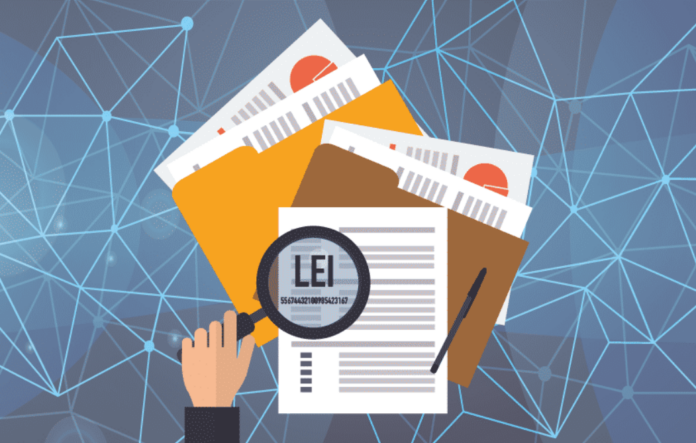
The 21st century is an era of progress. Every sector has found ways to increase its efficiency and make development. The rising population creates a proportional rise in the demands in the existing structure. A rise in living standard quality has also caused this demand surge. An increase in demand has forced businesses to increase production.
As a result, ever since industrialization businesses have expanded to a considerable amount. Companies today look for global expansion as a vital milestone of success.
Expanding overseas also helps to see exponential growth with the transaction value hikes.
As businesses expand globally, it is important for them to have recognition and be listed or registered officially. This has to be done so as to make transactions and the identification of a company easier. For this, the GLEIF oversees a key element called LEI code, globally, which gives recognition to companies. To know more about what LEI is, who can get it, who cannot, and much more, read further. You can also check the LEIService for additional information.
What Is Legal Entity Identifier (LEI)?

The LEI – Legal Entity Identifier is a unique recognition keycode that helps identify a firm’s activities. It is a 20 digit code composed of characters in a unique combination similar to none assigned to any other firm. This code helps to identify transactions and other business actions that the firm takes, all around the globe. It was first discussed and introduced by the G20 summit in the year 2011.
This system Global Legal Entity Identifier System (GLEIS) consists of LEI data of all the businesses that are in operation currently worldwide. It is governed by the Global Legal Identifier Foundation (GLEIF). It regulates all the policies, actions, transaction history of all the businesses.
This database of LEI for all businesses to access as read-only data. This helps to identify and confirm any firm’s data. Thus, it helps assure the legitimacy of a firm for national, international business.
What Makes LEI A Necessity In Today’s Era?
When you go to buy any product, you assure its originality to get the best quality. The same goes with conducting business. Assurance about the credibility of a company helps to improve and smoothen the business. This was realized soon during the Financial crisis era that affected all commercial businesses worldwide.
To conduct a business, both parties must be free from any fears of fraud. This is where the LEI and GLEIS come into the picture. It helps standardize the business activities of a firm, thereby aiding in a global identification system. LEI helps avoid any chances of online fraud between two parties by maintaining complete transparency. This saves a considerable amount of time.
In the UK, this code is regularly used. In India, an equivalent code, IEC, CIN, GSTIN, or UAN is used.
Benefits of Legal Entity Identifier (LEI) and GLEIS

The introduction of LEI has helped businesses on the international level to list their recognition on the web. Introduced at the G2O in 2011, there are many advantages that businesses get due to this. Discussed below is a list of these benefits.
• Makes Tracking Transactions of Business groups and firms easier
• It improves the trust factor between both the parties and also helps business globalization
• There is one common identifier for all jurisdictions, businesses, and many more, that makes it a considerably easier task during transactions.
• It gives real-time information about a particular firm and its counterparties
• Saves time by replacing the old KYC records and this also helps save a significant amount of money annually.
• For firms with innumerable branches, LEI helps distinguish between these branches and their actions.
• LEI also shows the structure within a firm or a group of firms.
Now before we study who can get an LEI, let us see who cannot get an LEI.
Who Cannot Get an LEI?
Generally, the LEI is issued by a Local Operating Unit (LOU). An LOU – Local Operating Unit is an LEI – Legal Entity Identifier code issuing organization, for businesses who wish to establish their credibility. This gives it visibility at a global level. An LEI cannot be requested by the following entities:
• Individuals
• Operating Divisions
• Branch divisions with the main office in the same country with a registered LEI
Who May Get an LEI?

The Legal Entities who can get an LEI are as follows.
• Registered Companies and Subsidiaries
• Non-Profit Organizations
• The one-and-only, sole proprietors
• Trusts
• International Branch Divisions with the Main office having an LEI beforehand
The information on how to register for LEI is quite simple. You can also hire a registration agent for the same. This agent works with several LOUs and sees that your needs of getting a Legal Entity Identifier (LEI) are met properly. An important point to note is the renewal of LEI. The LEI code has to be renewed annually.
Conclusion
As the world expands its knowledge and technology limits, the processes are bound to get better and easier. Further, it will also need to be managed in a way so that there is no mix-up when reviewed at a later stage. For this, there must be a system with standard operating procedures.
When the businesses began expanding at a global level, the increased number of transactions created a possibility of online frauds. This is where the Legal Entity Identifier (LEI) has come into effect. Begun by the G20 at a 2011 meeting, the Global LEI System (GLEIS) is overseen by the Global LEI Foundation (GLEIF).
Tracking a business transaction, daily activities, and identification of an organization are some activities that can be carried out using an LEI.
You can hire a registration agent to get an LEI for your firm. This agent helps you by taking care of the formalities and interacting with the Local Operating Unit (LOU) for the procedure purposes. Firms carrying out business transactions without an LEI can be at risk of being fined. If you are a firm looking to expand globally, make sure you get an LEI number and its details before starting business transactions.











